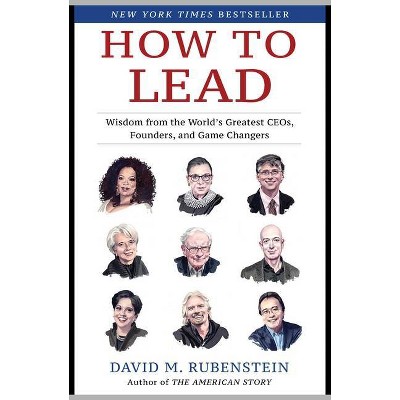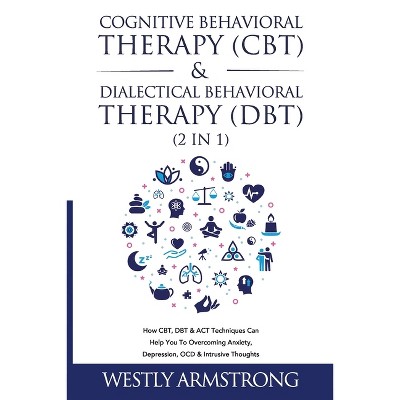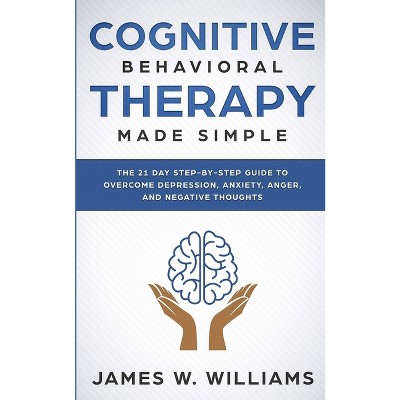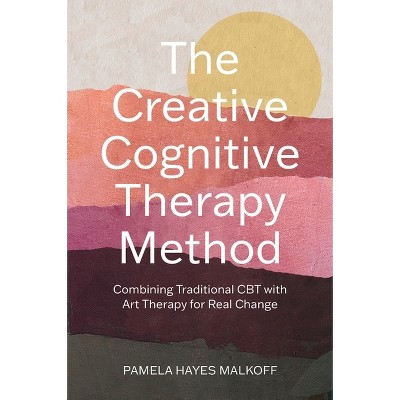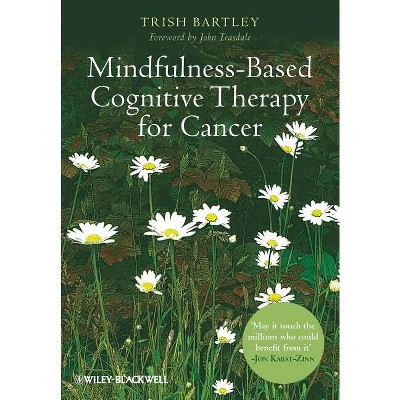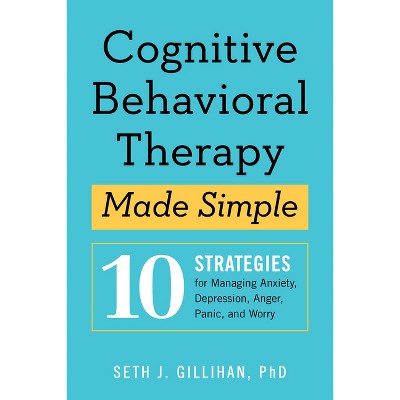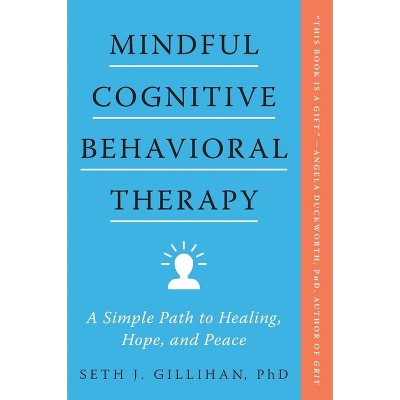Sponsored

Introducing Cognitive Analytic Therapy - 2nd Edition by Anthony Ryle & Ian B Kerr (Paperback)
In Stock
Sponsored
About this item
Highlights
- Introduces the principles and applications of cognitive analytic therapy (CAT) Cognitive Analytic Therapy (CAT) is an increasingly popular approach to therapy that is now widely recognised as a genuinely integrative and fundamentally relational model of psychotherapy.
- About the Author: ANTHONY RYLE, DM (Oxon), was a Consultant Psychotherapist at St. Thomas' Hospital, London, having initially worked as an inner London GP, and then as Director of Sussex University Health Service.
- 384 Pages
- Psychology, Psychopathology
Description
About the Book
"Cognitive Analytic Therapy (CAT) was first developed in the 1980s as a time-limited individual therapy that could be used in publicly funded services, but is now being extended into new and longer formats for more complex patient groups. Although initially an attempt to integrate psychoanalytic and cognitive theories and methods, CAT has over time become increasingly differentiated from both. Now, it is established as a distinct model, still evolving and with an ever-expanding research base, which offers a coherent understanding of normal and dysfunctional individual psychology. The second edition of Introducing CAT will follow the same form as the first, to offer a systematic and comprehensive introduction to the origins, development and practice of CAT. However, the new edition will provide a fully updated overview of developments in theory, practice and research, and of extensions into new areas. It will supplant the first edition as the primary teaching text for all CAT training that takes place worldwide. There are currently 15 established courses in the UK plus more in Greece, Finland, Australia and Spain, and developing interest in countries such as Chile, New Zealand and Bulgaria. The international community is brought together by the Association for Cognitive Analytic Therapy (ACAT) and the new International Cognitive Analytic Therapy Association (ICATA), launched in autumn 2009"--Book Synopsis
Introduces the principles and applications of cognitive analytic therapy (CAT)
Cognitive Analytic Therapy (CAT) is an increasingly popular approach to therapy that is now widely recognised as a genuinely integrative and fundamentally relational model of psychotherapy. This new edition of the definitive text to CAT offers a systematic and comprehensive introduction to its origins, development, and practice. It also provides a fully updated overview of developments in the theory, research, and applications of CAT, including clarification and re-statement of basic concepts, such as reciprocal roles and reciprocal role procedures, as well as extensions into new areas of expertise.
Introducing Cognitive Analytic Therapy: Principles and Practice of a Relational Approach to Mental Health, 2nd Edition starts with a brief account of the scope and focus of CAT and how it evolved and explains the main features of its practice. It next offers a brief account of a relatively straightforward therapy to give readers a sense of the unfolding structure and style of a time-limited CAT. Following that are chapters that consider the normal and abnormal development of the Self and that introduce influential concepts from Vygotskian, Bakhtinian and developmental psychology. Subsequent chapters describe selection and assessment; reformulation; the course of therapy; the 'ideal model' of therapist activity and its relation to the supervision of therapists; applications of CAT in various patient groups and settings and in treating personality type disorders; use in 'reflective practice'; a CAT perspective on the 'difficult' patient; and systemic and 'contextual' approaches.
- Presents an updated introduction and overview of the principles and practice of cognitive analytic therapy (CAT)
- Updates the first edition with developments from the last decade, in which CAT theory has deepened and the approach has been applied to new patient groups and extended far beyond its roots
- Includes detailed, applicable 'how to' descriptions of CAT in practice
- Includes references to CAT published works and suggestions for further reading within each chapter
- Includes a glossary of terms and several appendices containing the CAT Psychotherapy File; a summary of CAT competences extracted from Roth and Pilling; the Personality Structure Questionnaire; and a description of repertory grid basics and their use in CAT
- Co-written by the creator of the CAT model, Anthony Ryle, in collaboration with leading CAT practitioner, trainer, and researcher, Ian B. Kerr
Introducing Cognitive Analytic Therapy is the definitive book for CAT practitioners and CAT trainees at skills, practitioner, and psychotherapy levels. It should also be of considerable interest and relevance to mental health professionals of all orientations, including clinical psychologists, psychiatrists, counselors, mental health nurses, to those working in forensic and various institutional settings, and to a range of other health care and social work professionals.
From the Back Cover
Introduces the principles and applications of Cognitive Analytic Therapy (CAT)
Cognitive Analytic Therapy (CAT) is an increasingly popular approach to therapy that is now widely recognised as a genuinely integrative and fundamentally relational model of psychotherapy. This new edition of the definitive text to CAT offers a systematic and comprehensive introduction to its origins, development, and practice. It also provides a fully updated overview of developments in the theory, research, and applications of CAT, including clarification and re-statement of basic concepts, such as reciprocal roles and reciprocal role procedures, as well as extensions into new areas of expertise.
Introducing Cognitive Analytic Therapy: Principles and Practice of a Relational Approach to Mental Health, Second Edition starts with a brief account of the scope and focus of CAT and how it evolved and explains the main features of its practice. It next offers a brief account of a relatively straightforward therapy to give readers a sense of the unfolding structure and style of a time-limited CAT. Following that are chapters that consider the normal and abnormal development of the Self and that introduce influential concepts from Vygotsky, Bakhtin and developmental psychology. Subsequent chapters describe selection and assessment; reformulation; the course of therapy; the 'ideal model' of therapist activity and its relation to the supervision of therapists; applications of CAT in various patient groups and settings and in treating personality type disorders; use in 'reflective practice'; a CAT perspective on the 'difficult' patient; and systemic and 'contextual' approaches.
- Presents an updated introduction and overview of the principles and practice of cognitive analytic therapy (CAT)
- Updates the first edition with developments from the last decade, in which CAT theory has deepened and the approach has been applied to new patient groups and extended far beyond its roots
- Includes detailed, applicable 'how to' descriptions of CAT in practice
- Includes references to CAT published works and suggestions for further reading within each chapter
- Includes a glossary of terms and several appendices containing the CAT Psychotherapy File; a summary of CAT competences extracted from Roth and Pilling; the Personality Structure Questionnaire; and a description of repertory grid basics and their use in CAT
- Co-written by the creator of the CAT model, Anthony Ryle, in conjunction with leading CAT practitioner, trainer, and researcher, Ian B. Kerr
Introducing Cognitive Analytic Therapy is the definitive book for CAT practitioners and CAT trainees at skills, practitioner, and psychotherapy levels. It should also be of considerable interest and relevance to mental health professionals of all orientations, including clinical psychologists, psychiatrists, counselors, mental health nurses, to those working in forensic and various institutional settings, and to a range of other health care and social work professionals.
About the Author
ANTHONY RYLE, DM (Oxon), was a Consultant Psychotherapist at St. Thomas' Hospital, London, having initially worked as an inner London GP, and then as Director of Sussex University Health Service. As a GP, he undertook clinical research in mental health and developed an interest in psychotherapy integration, which ultimately led to the development of CAT. After his retirement from St. Thomas', he remained actively involved in teaching, supervision and research in the NHS and through the UK Association for Cognitive Analytic Therapy (ACAT) until his passing in 2016.
IAN B. KERR, MD (Edin), has been a Consultant Psychiatrist and Psychotherapist in the NHS in London, Sheffield, and Lanarkshire in the UK, and currently works in Northland, New Zealand-Aotearoa. He undertook a range of psychotherapy trainings including in CAT with Anthony Ryle, with whom he worked closely over many years. His clinical and research interests centre around working with 'severe and complex' and 'difficult' presentations, including systemically and cross-culturally. He has taught on and been trainer for many CAT courses in the UK and internationally.

